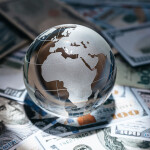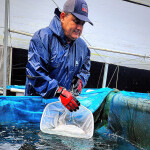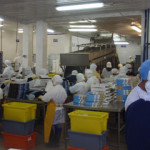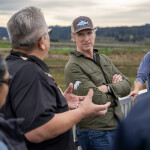A newly formed industry body aims to encourage more sustainable practices in Hong Kong’s thriving seafood sector.
The Hong Kong Sustainable Seafood Coalition was formed in December 2018 promote the consumption of responsibly sourced marine species. The new organization, which is modeled on the Sustainable Seafood Coalition in the United Kingdom, seeks to bring together seafood distributors, caterers, and retailers “to promote seafood sustainability and address concerns over illegal, unregulated, and unreported fish products in the supply chain,” according to a statement.
Benjamin So, the chairman of the new coalition, is the founder of distribution firm 178 Degrees, an importer of foods for catering clients and households. He said the initiative is based on a pre-competitive model that will seek adoption of new voluntary codes of conduct on seafood sourcing and environmental claims for packaging and menus.
“As users of a critical natural resource, we have a duty to ensure its responsible use,” So said. “By adopting the HKSSC code of conduct, members can address the increasing concern among Hong Kong consumers regarding the sustainability of marine populations. Last but not least, collective industry action will bring greater commercial certainty to the seafood business.”
Hong Kong’s population annually consumes about 70 kilograms of seafood per capita compared to a global average of 20 kilograms, according to the Food and Agriculture Organization (FAO) of the United Nations. Much of the consumption is done in dining establishments that emphasize the seafood-rich Cantonese cuisine style. In addition to being a business and entertainment hub for visiting Chinese, the city also serves as a major transshipment point for seafood headed to mainland China.
Other organizations – in particular the WWF – have sought to work with catering and retail executives In Hong Kong to increase sustainable consumption and purchasing practices. WWF has also sought to guide consumers towards sustainable seafood purchases.
Conservationists have called on Hong Kong’s trade-friendly authorities – the city is a free port – to be far more vigilant about inflows of seafood and to better control the large inward trade in endangered species such as live coral fish from Southeast Asia that enter the city on locally-registered vessels.
Photo courtesy of WWF






